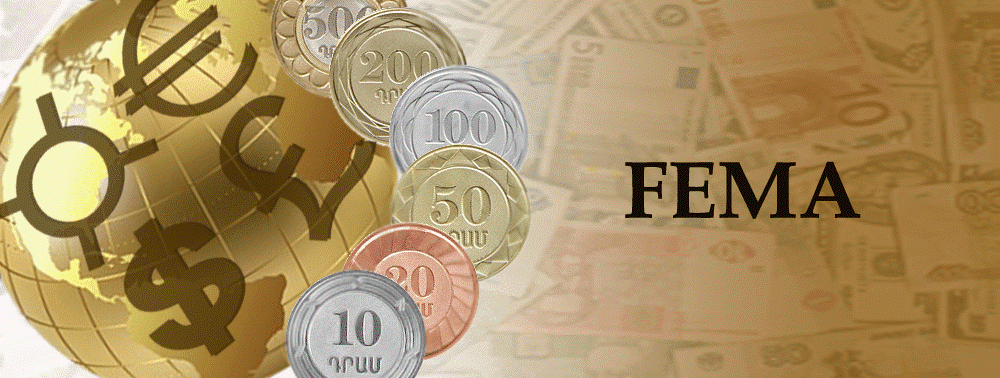Free Courses Sale ends Soon, Get It Now


Free Courses Sale ends Soon, Get It Now



Disclaimer: Copyright infringement not intended.
Context
FEMA: Background
FEMA and FERA
|
FERA |
FEMA |
|
It was enacted in 1973 to promote the regulation of foreign exchange and trade in India. |
It was enacted in 1999 to encourage and facilitate external trade. |
|
It was restrictive |
It is flexible and makes foreign trade and transactions comparatively easy. |
|
It contains 81 sections |
It contains 49 sections |
|
It was a gravely strict act as it criminalized every offence and required imprisonment for even minor offences. |
It promoted liberalization and converted the criminal offence under FERA into ‘civil offence’. |
|
It was introduced at a time when the foreign exchange reserves (Forex) of India were low. |
It was introduced with the intention of replacing FERA, as it was unsuccessful in applying the restrictions. |
Objectives of FEMA
Salient Features of FEMA
FEMA and Foreign Exchange Transactions
Applicability of FEMA Act
The Current Account transactions under the FEMA Act has been categorized into three parts which, namely-
What Prohibitions Are Made Under FEMA Act In India?
What Are the Rules Of Trade For Foreign Exchange Management Act (FEMA) In India?
According to the RBI, foreign exchange can be undertaken with any authorized dealer via the Prior Approval Route or General Permission Route.
|
Scenario |
Limitations |
|
Visiting privately to any country (except Bhutan and Nepal) |
Liberalized Remittance Scheme (LRS) limit of USD 2,50,000/- per year. |
|
Personal donations/gifts by resident individuals |
Liberalized Remittance Scheme (LRS) limit of USD 2,50,000/- per year. |
|
Corporate Donations by persons other than resident individual |
One per cent of the forex earnings during the preceding three financial years. |
|
Leaving India for the purposes of gainful employment |
Liberalized Remittance Scheme (LRS) limit of USD 2,50,000/- per year. |
|
Payment for emigration |
Liberalized Remittance Scheme (LRS) limit of USD 2,50,000/- per year. |
|
Payment for the care of relatives (only close relatives) outside of India by a person who is resident but not permanently resident in India |
The salary (after deducting income tax, Provident Fund, and other deductions) of a person not being a permanent resident in India and a citizen of a foreign state other than Pakistan. |
|
Business travel abroad |
US$250,000 per year. |
|
Attending a training course or conference |
US$250,000 per year. |
|
For overseas medical treatment |
US$250,000 per year. |
|
The care of a patient going for a medical check-up or medical treatment abroad. |
US$250,000 per year. |
|
The care of a patient going for a medical check-up or medical treatment abroad. |
US$250,000 per year. |
|
Studying abroad |
US$250,000 per academic year or the education institution’s estimation, whichever is higher |
|
Meeting the expenses of a person accompanying a patient going for a medical check-up or for medical treatment abroad |
US$250,000 per year. |
|
Commission payment to an agent outside India for selling of commercial or residential land or property in India |
US$25,000 or five percent of the transaction, whichever is higher. |
|
Consultancy services from overseas |
US$10,000,000 per project (for infrastructure projects). |
|
Pre-incorporation expense reimbursements |
US$100,000 or five percent of the investment brought into India, whichever is higher. |
The following foreign transactions require the approval of the Central Government:
Penalties Under FEMA
Power to Compound Contravention
Authority and Courts
In exercise of the powers conferred by section 18 of the Foreign Exchange Management Act (FEMA), 1999, the Central Government constituted Appellate Tribunal for Foreign Exchange (ATFE) to hear appeals against the orders passed by the Adjudicating Authorities and the Special Director (Appeals) under this Act.
|
PRACTICE QUESTION Q. Which of the following statements are correct in reference to Foreign Exchange Management Act? a) All the Capital and Current account transactions relating to foreign exchange and trade cannot be carried out without prior permission from FEMA. b) FEMA promoted liberalization and converted the criminal offence under FERA (Foreign Exchange Regulation Act) into ‘civil offence’. c) FEMA (Foreign Exchange Management Act) is applicable to the whole of India but not equally applicable to the agencies and offices located outside India. d) If any person contravenes the provisions of FEMA or any rule, direction, regulation, order or notification issued under FEMA, he shall be liable to pay a penalty up to thrice the sum involved in such contravention. 1. a and c 2. a, b and d 3. b, c and d. 4. None of the above. Correct Answer: Option 2 |
© 2024 iasgyan. All right reserved